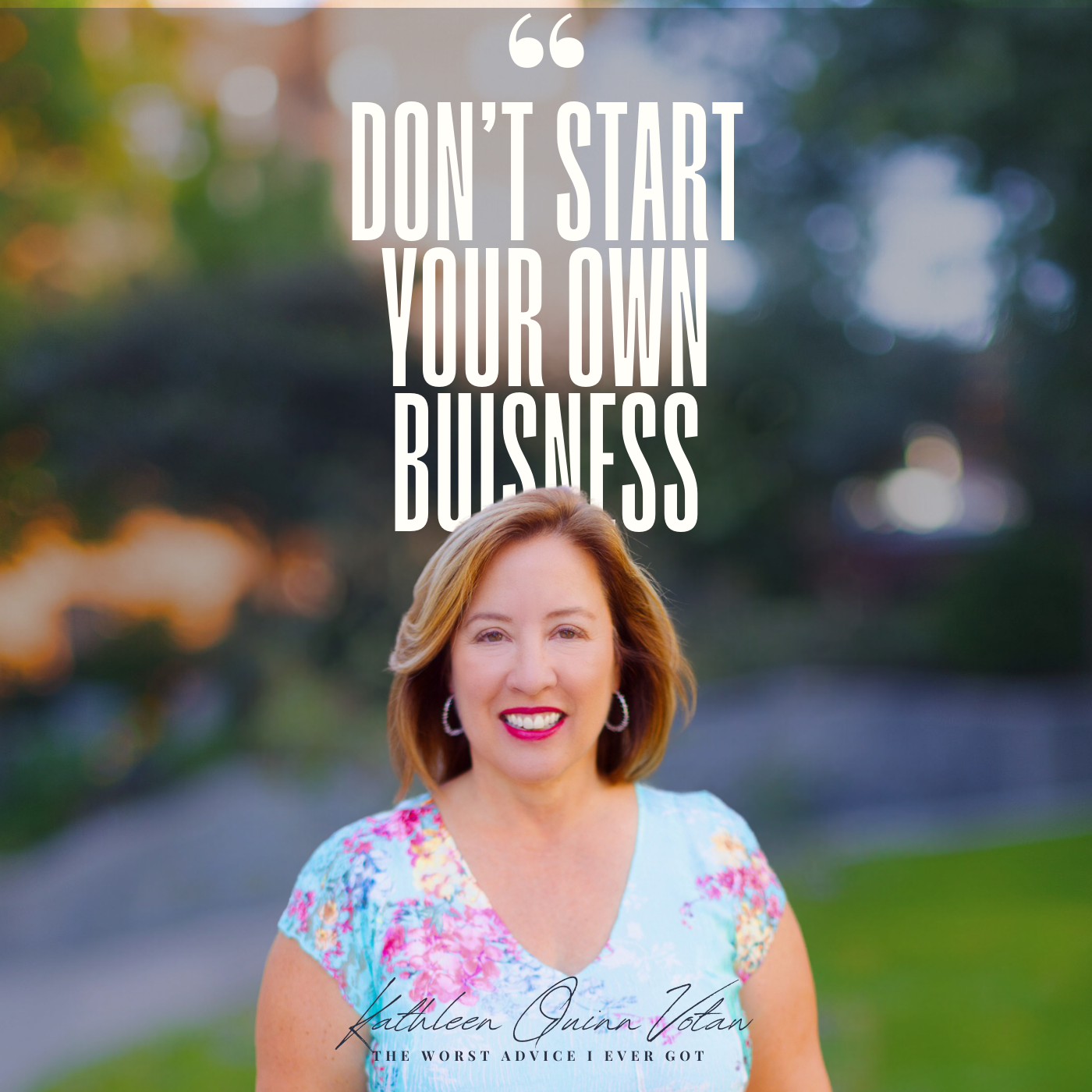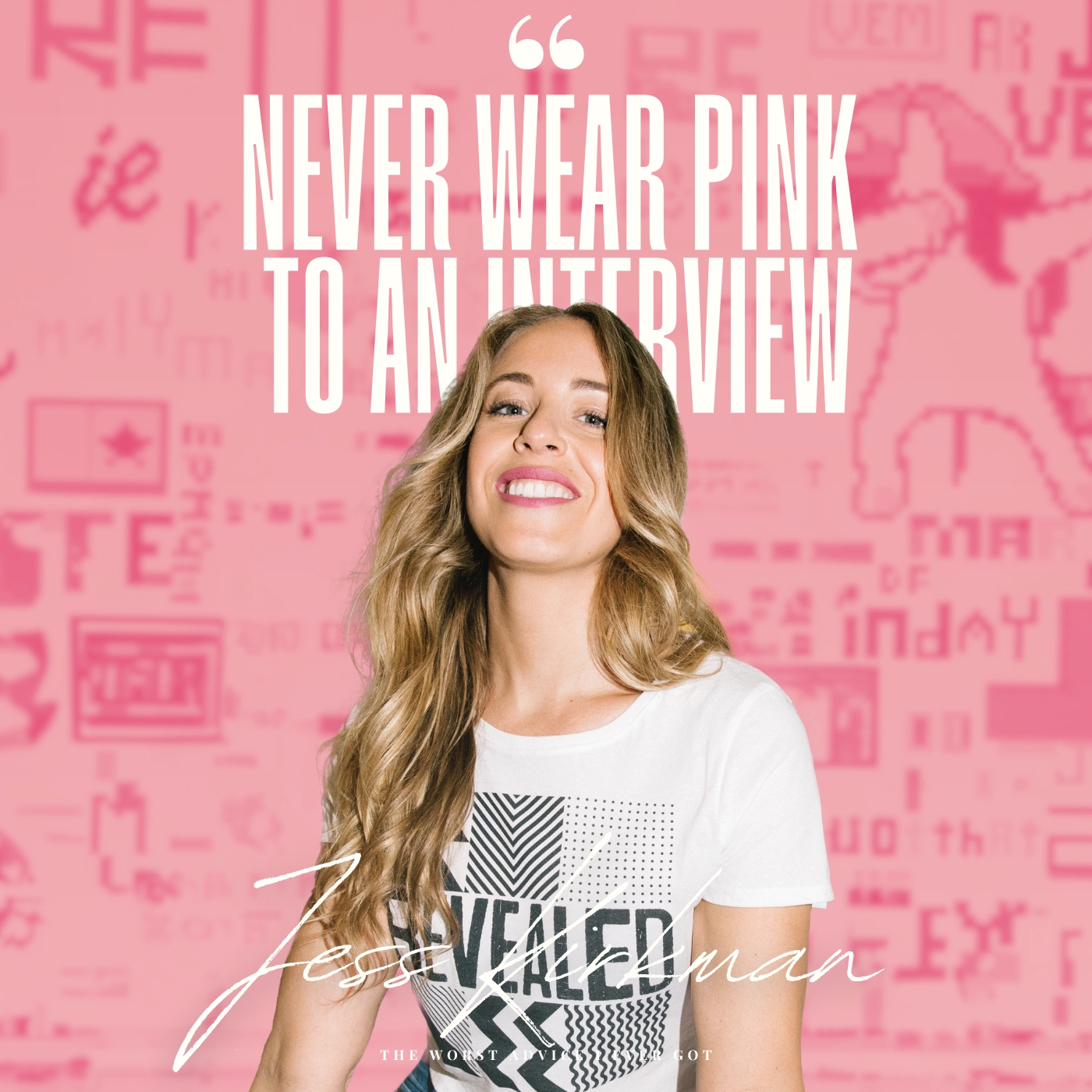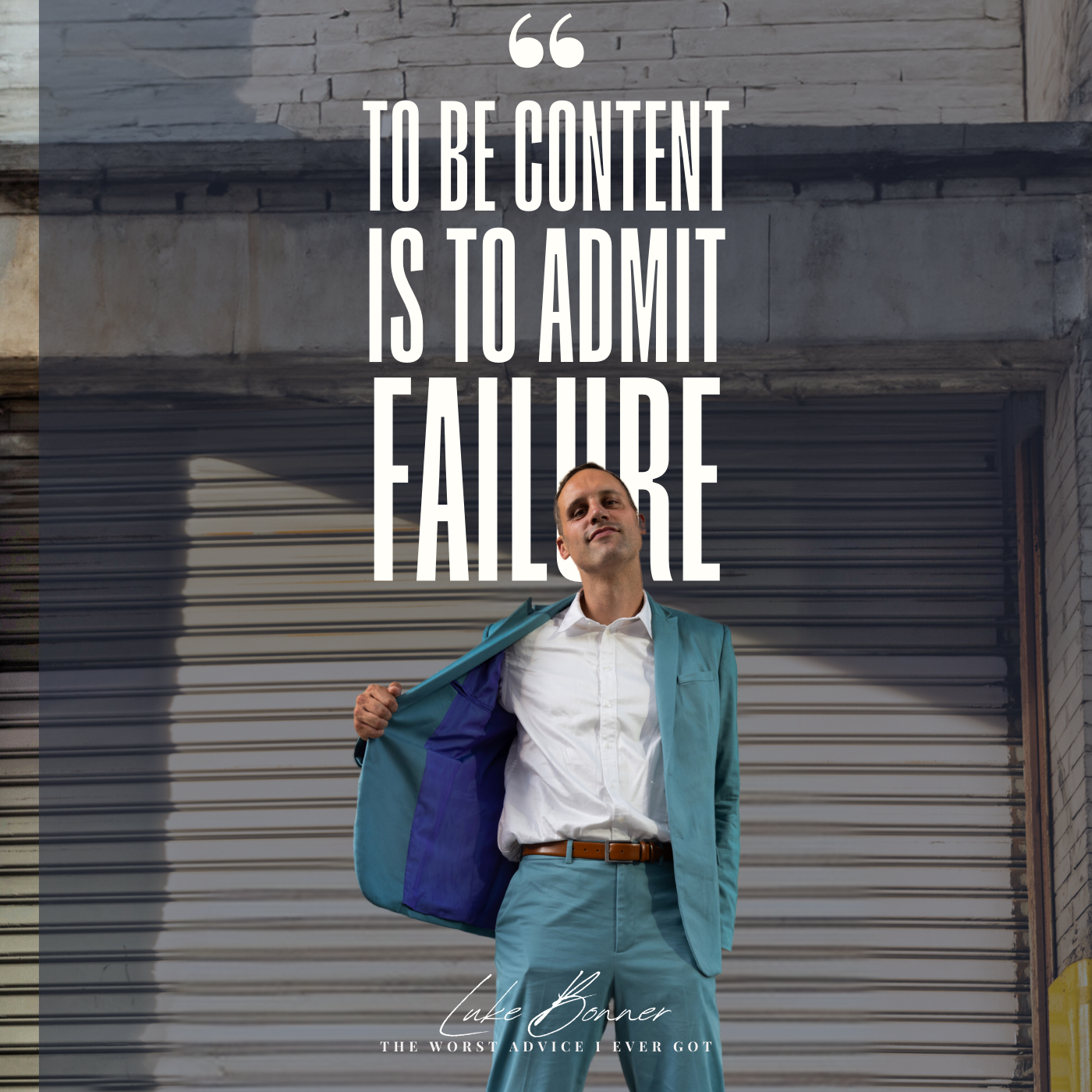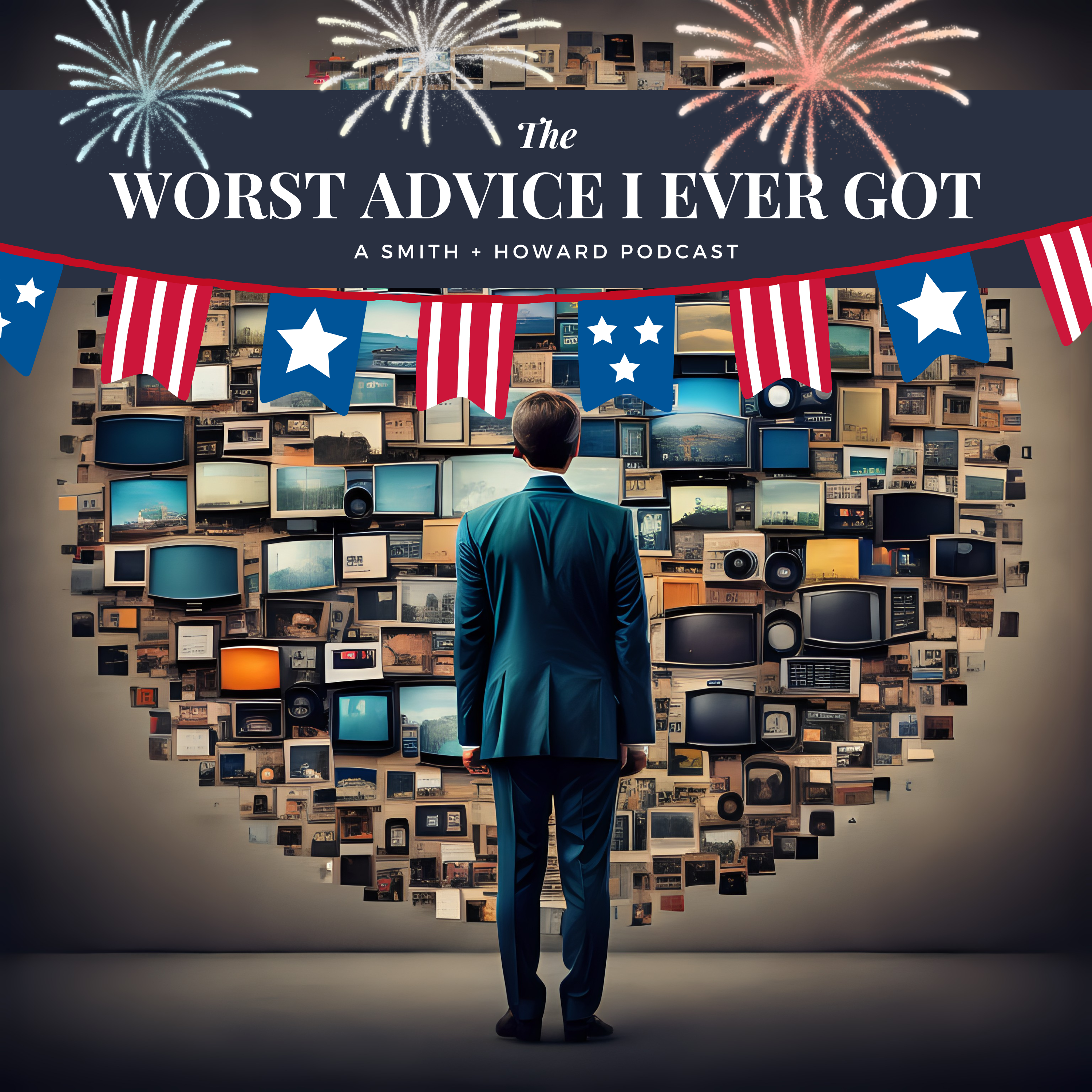Episode Transcript
[00:00:06] Speaker A: Hey, everybody. And welcome to the worst advice I ever got. I'm your host Sean Taylor along with my producer JB. And today we're joined by Kathleen Quinn Vota. Kathleen is a leading authority on resolving the number one concern of CEO's across the country, how to find and keep top talent. She's the author of two books, a widely published author on articles on recruitment, retention, culture and leadership, and a highly regarded expert and speaker on what it takes to thrive when the ground keeps shifting. She's the award winning founder and CEO of the company Talent Trust and is a valuable strategic partner to high growth companies throughout the United States.
[00:00:47] Speaker B: Kathleen, it's wonderful to see you again. Thanks for joining us today.
[00:00:50] Speaker C: Wow, Sean, I'm looking forward to, to our discussion as always.
[00:00:54] Speaker B: So I'd like to jump right in. Please tell me what was the worst advice you ever got?
[00:01:00] Speaker C: When I think about this question, it's such a provocative question for all of us. It really was from my family, specifically my sister, who I love. But she said, don't start a business.
What are you crazy? Why would you want to go be an entrepreneur? Have to find all your own clients, hire all your own people, have all these expenses, go get a job.
[00:01:26] Speaker B: Tell me about the time when you got the advice. Did you ask for it? Did she simply volunteer it?
[00:01:34] Speaker C: I was fired from my last big girl job for a major multi billion dollar corporation.
It was right after I had my son in 2003 and right after my thyroid cancer diagnosis.
And on the baby, just remember that that's a really important birth order thing. So everybody knows what to do better than the baby, right? I'm 57 years old. I'm still the baby. But this one sister was really adamant this is the worst time to start a recruiting firm. This is the worst time to go out on your own. But I didn't ask for it directly. I got it anyhow, it's funny, in.
[00:02:18] Speaker B: Talking to so many of our guests on our podcast, people think, oh, I need to, I need to help somehow. Let me give some sage advice. And that sounded a little bit like what was going on here. What about this advice made it the worst advice you ever got?
[00:02:33] Speaker C: Well, that question, you know, you look at it in the rear view mirror, right? And so for me, the reason it was the worst advice is 20 years later, I'm still standing. Not only standing, but, you know, employing 22 people, love my team and working with customers all over the country and really living the life I want to live. It was the worst advice because what if I didn't what if I didn't risk myself? Risk our finances, risked my family's welfare?
What if we don't? Risk is the question that comes up in my mind.
[00:03:20] Speaker B: I wonder if I'd ask you this question two years after you got the advice, if you would jump to it being the worst advice you ever got.
[00:03:27] Speaker C: The word that I always use when people are like, why did you? What are you doing?
Is freedom.
Freedom of choice. Freedom of. I can be a mom. I can make the cookies when Johnny gets off the bus. So in those two years, you know, the first two to, I say the first eight years, my son was two to ten.
So it allowed me the opportunity to be where I needed to be for my family. That is, like, amazing. It's just you can't compare. You can't ever get that back. So the first ten years allowed me to be a mother, an entrepreneur, a curious critter in the corporate world, and they were so, like, I would have to leave at 03:00 to go get the kid on the bus, and nobody cared. But if I was employed at the time, they would have cared.
[00:04:23] Speaker B: Well, we all realize at different points in time whether or not this advice was good or bad, and that was one part of the context of the question. But I guess I want to ask another question about this in a little bit different way.
[00:04:34] Speaker C: Sure.
[00:04:35] Speaker B: Do you think the advice itself is bad?
[00:04:39] Speaker C: Wow. Insightful. So I don't think being an entrepreneur is for everyone. So I think it was the context and the person. Let me expand on that, if you will. So the context is, oh, whoa, don't take any risks. Be safe. Get in line, too, a little bit, like, stay in your guardrails. The expected way of doing things. It was fear, love, and their risk profile, not me. And I have found, Sean, that people give advice from their point of view.
[00:05:22] Speaker B: Great point. That's a great point. I think as we've delved into this, I think I can see exactly what you're saying. This person gave you advice for yourself through their own lens without maybe a good understanding of their own risk profile.
[00:05:39] Speaker C: And it doesn't mean they're mean or ill willed or don't have the right intentions, just that's kind of the way they've made decisions in their life, and it doesn't necessarily mean it's right for me or for you.
[00:05:53] Speaker D: Would you say, would you give the same advice if you had or taken the same advice or thought about it the same way if you hadn't been as successful as you are?
[00:06:03] Speaker C: You mean now in present time or backstage?
[00:06:05] Speaker D: Sure. You know. Yeah. It's like, I mean, you know, if it's. You've obviously, you know, you said you got 22 employees. You've done very well for yourself. Everything turned out fine. But if it hadn't, if, you know, a lot of people who start their own business fail in the first year, the two years, would you still think that's bad advice?
[00:06:22] Speaker C: Knowing myself, JB, I probably would have just started something else. You know, success and failure. I think they're funny little words, right? Because success is truly. It's how we define success. We don't all have a common. Here's what success means. So as long as I was free, I had that freedom to make my choices for my family, where I was gonna be, how I was gonna be. Like, that was the definition of success for me. But I think this journey I've been on for freedom, it's not for wealth, it's not for fame. It's not for this elusive success definition. It's to take care of the people. I love, Andy and Johnny, in the best way I can.
[00:07:14] Speaker B: Beth and Howard, we all profess to work towards a common vision. We have a core set of values, a purpose, a shared mission. But I want entrepreneurial mindsets to embrace that within our firm and work towards that. Is it possible to have entrepreneurs working together in one organization, or do they always have to go their own way?
[00:07:36] Speaker C: Yeah, it reminded me of a song. Go their own way. You know, they don't have to go their own way. If you create a community that they can be intrapreneurs. Smith and Howard isn't a company, and it isn't a culture. It's a community of people striving to achieve common goals. And I know you, and I know you're doing that. And the leadership, they really want people to be successful, whatever their definition of successful is. So you've created a community where people can be entrepreneurs. Now, the tricky part is sometimes people won't believe you. So it's a delicate thing.
[00:08:19] Speaker B: I think you're getting us down a path that I want to. That I want to go down a little bit with you because it is your balliwick, right. It's about a better understanding of who you are as an individual.
Just talk a little bit about how important that is, because you seem to know yourself very well.
[00:08:34] Speaker C: Well, by the age of 57, I would hope.
I know myself a little bit well, I think it's a journey every day to know thyself.
But it's really important that we know what motivates the people who we choose to work in our company?
They're not working for us. This is the big myth of companies. We think the employees are working for us.
Not the money, not the corporate core values, but what they're trying to build for their family. So what if we kind of turned it around a little bit and asked our people, why are you doing this? What motivates you every day?
[00:09:18] Speaker D: It's actually interesting. Back to your, like, advice that they weren't saying, don't start your own business. They were saying, ignore what you need the most.
[00:09:27] Speaker C: And do they even know?
[00:09:29] Speaker D: Do they even know?
[00:09:30] Speaker C: Have they taken the time to know what makes the person they're giving the worst advice to tick?
[00:09:38] Speaker B: That's interesting. You were sort of, I think, delving into another question I had, which is, I'm a 20 something to 30 something year old individual. I've been struggling at my work, and I don't know what to do. What advice do you have for someone who might be debating starting their own thing?
[00:09:58] Speaker C: Well, I have a 23 year old, so I know that I've been having these conversations, and it's really an interesting world for the 20 and 30 somethings.
They're in the driver's seat a little bit because there's more jobs than there are job seekers.
But if you're contemplating becoming an entrepreneur, there's a couple things I would think of now, having the 28 years of experience that I have. One, access to capital.
Because you have to have cash to have a company. It's just a fact, so be prepared. I was 34 before I did it, and I had some access. You know, I had a home. I had. I had some leverage. If you just have an apartment, you don't own anything. It might be more tricky. And talk to advisors. Just because I got the worst advice I'd ever gotten from a family member doesn't mean I didn't filter it through.
Have a mentor, somebody who's walked in that path. So find an entrepreneur that has been successful, and they'll be able to help you understand, in the industry, you're looking in kind of the highs, the lows, the things to look for, the things to consider.
The one thing people forget about being an entrepreneur is you need to be a sales and marketing person, because revenue doesn't just knock on the door. So most entrepreneurs have not been successful at driving revenue because it's not their skill set. I think those are the key things I would look at.
[00:11:48] Speaker D: Trey, do you think most people have that, or most people don't.
[00:11:52] Speaker C: I think most people don't have sales and marketing. It's called enterprising is the actual skill, but the skill is really to be enterprising, you know, and to create a community who can buy from you and really understand what you're selling and messaging it and create this resource for people. It's not an easy thing for people to do. And if you think of your own companies, the people who are listening, how much trouble do we have finding great salespeople? Well, the skill you're actually looking for is that enterprising piece, but we look for past performance. But how enterprising, really are they? And the enterprising skill is the ability to be with anybody and be memorable about your products or services and be a resource.
[00:12:48] Speaker B: Kathleen, it strikes me that someone could seek from you advice about whether they should or should not start their own business. And you might actually tell them, no, you shouldn't. You might should start your own business. But before you do that, you need three or four years of industry experience to gain a knowledge base, to gain reputation, to gain capital, to do the things you need to do. So sometimes you got to go through some stuff first before you're really poised to be successful.
[00:13:16] Speaker C: I wouldn't say no. I would say plan when. And, you know, to our 23 year olds out there, it is okay to learn a little bit and be patient. Everybody's busy trying to get to the next level. You know, everybody's trying to get there.
[00:13:34] Speaker A: Whatever, wherever that is there.
[00:13:37] Speaker C: Like, Todd Musselman is a great friend of mine, and he's just, he talks about, well, are you there yet?
Guess what? Nobody's there. And everybody's looking for the there. Whether you're 23 or 57 or 65, there's a there, and stop looking for there. Maybe enjoy where you are, get some experience.
But it, for me, it would never.
[00:14:00] Speaker B: Be no, not no, but no, when I really like that. Sounds like a nice culmination to today's conversation. Kathleen, what a delight it's been to have you with us on the worst advice I ever got. Uh, I think you contributed a wealth of information for our listeners today. Thank you so much.
[00:14:18] Speaker C: Thank you for having me. Sean.
[00:14:21] Speaker A: Jimmy, that episode was really interesting for a number of reasons. You know, this worst advice that Kathleen ever got actually came from a close family member. What were the first few thanksgivings like?
[00:14:33] Speaker D: Yeah, gotta be tough when you get somebody that close. And, you know, I wonder if she, we didn't ask her about it, if she ever went back to the well, she, like, hey, I'm doing a new thing. Do you have any new advice? Or maybe she's just like, well, no. One strike. You're out.
[00:14:45] Speaker A: The other thing that I pulled from this was that this is the worst advice she ever got now, because she actually was sort of thinking back to, hey, I was successful. So it kind of proves the point that it was bad advice. But it kind of begs the question, does time change our perspectives on all advice, whether it's good or whether it's bad?
[00:15:05] Speaker D: Yeah. When she was like, uh, not if somebody asked me, should I start my own business, I might not say no, but I might say not right now. I'll ask a lot of questions before answering that question.
[00:15:15] Speaker A: Yes or no, context and the person matters. She said, people give advice from their point of view, and, you know, we've. We've heard that from other guests. It may be the number one learning from this first season of the worst advice I ever got is that it's always coming from their point of view.
[00:15:32] Speaker D: Yeah. Which always makes it bad. If you don't think about the other person while you're giving the advice, it's always going to be bad.
[00:15:38] Speaker A: I love what she said, that everyone's trying to get there and are you there yet?
I wonder if everybody struggles with that same question.
[00:15:50] Speaker D: Yeah. What is there?
[00:15:51] Speaker A: Yeah. Well, I know what there is for us, JB. There is. We have just completed our first official season of the worst advice I ever got.
[00:16:01] Speaker D: Round golf clap golf club.
[00:16:02] Speaker A: Yeah. Hey, everybody. Golf clap.
[00:16:06] Speaker D: Yeah. It's a good, it's a great first season. A lot of different kind of guests with different backgrounds. Really, what we set out to do was just make sure we had a lot of different people talking about a lot of different things that could, you know, give a big, wide audience for us to just anybody who's gotten bad advice, you know, come on the show.
[00:16:23] Speaker A: It's been terrific. And, you know, Kathleen's question, are you there yet? No, we're not there yet because as we've, you know, conducted this season and met these wonderful guests, what it's led me to believe is there's so much more to glean from continuing to invite successful people to talk about the worst advice they ever got. Because every episode we've had, you know, we can, we can share this. At the beginning of this, we worried, you know, these things will get repetitive, people will have the same worst advice, and it's been easy. Anything but that.
[00:16:54] Speaker D: No, every show seems different. Everybody, even somebody they might start off. It sounds like it might be the same, but that their personal experience and how they dealt with it is always different. So even if the advice kind of sounds the same, it doesn't matter. Like, it's going to their. The way they dealt with it is going to be different.
[00:17:11] Speaker A: Yeah, 100%.
And we learn so much from the different ways people deal with some of the same, you know, types of scenarios. But I'm just so excited for how the first season went.
We've reached a point where we're going to take a short break for the summer, so I think this would be a great time for our listeners to go back and listen to the episodes again. JB, have you ever watched a movie more than once?
[00:17:35] Speaker D: Oh, yeah. I'm a big rewatchables guy, so, yeah, same here.
[00:17:39] Speaker A: And you always see something different or hear something different when you watch the movie or your favorite streaming the second or third time around.
So I would hope that our listeners suggest to our listeners, listen back to a few of the episodes or all the episodes again and look for a piece of, you know, learning that you can take from it that you didn't get the first time. And our break won't be long. Don't worry. We've already begun season two. We've had some great guests already come and visit with us, and they continue to follow us on social media. We'll certainly be communicating with highlights from the first season, teasers for the second season. It won't be long. We'll be releasing season two, episode one.
[00:18:19] Speaker D: Absolutely. Yeah. Just thanks for listening, everybody. It was, it was a great first season. And thank you to all of our guests who came on, gave us a chance. Whenever you're starting a new brand, it can be hard to get people to buy in, and that really didn't seem to be too much of a problem for us. We had a lot of people in our network and outside of our network and friends of friends and all these things that just were like, absolutely. Let's. Let's make a podcast.
[00:18:40] Speaker A: I'm totally grateful, totally grateful to you, JB, and totally grateful to our guests. And we really, really appreciate all the efforts that went into creating this great first season. So until next season, thanks, everybody, for listening. Have a great summer. Look forward to being back with everyone next season on the worst advice I ever got.



